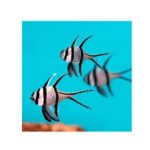
In ancient cultures, especially in China, dragons were not only seen as mystical and powerful creatures but also as symbols of imperial authority, natural forces, and warriors’ valor. The role of dragons in literature, particularly in ancient battle poems, carries profound meaning. These poems, written during times of war and conflict, often used dragons as metaphors for strength, leadership, and the divine intervention that guided victorious outcomes. The imagery of dragons in these poems symbolizes the triumph of good over evil, the strength of a nation or people, and the battle for survival against formidable odds.
This article explores the significance of dragons in ancient battle poems, particularly in Chinese literature. We will examine how dragons were portrayed in these works, the roles they played as symbols of power and divine protection, and how their influence extended into the cultural, spiritual, and political realms. Through various examples, we will uncover how the dragon’s imagery helped inspire and shape ancient warriors’ sense of strength, pride, and devotion to their cause.
Dragons in Ancient Chinese Mythology and Culture
To understand the role of dragons in ancient battle poetry, we must first explore their significance in Chinese mythology and culture. In Chinese folklore, the dragon is a highly revered creature, often associated with power, authority, and protection. Unlike the fearsome dragons in Western mythology, the Chinese dragon is considered a benevolent being that embodies prosperity, fertility, and the forces of nature.
The dragon is also a symbol of imperial power, often used to represent the emperor’s authority and divine right to rule. This powerful symbolism extends into the realm of battle, where the dragon was invoked to inspire warriors and rally them against their enemies. In many ways, dragons served as metaphors for the strength and indomitable spirit of the Chinese people, as well as the divine guidance that ensured victory in battle.
The Use of Dragons in Ancient Battle Poems
Ancient battle poems, particularly those composed during times of war, were used as a tool to rally troops, instill bravery, and inspire victory. These poems often depicted the heroic deeds of warriors, the valor of soldiers, and the divine favor that ensured their triumphs. Dragons were frequently featured in these poems to symbolize the overwhelming strength of the warriors, the divine intervention in the battle, and the unstoppable nature of the force that would lead to victory.
The imagery of dragons in these battle poems can be understood in several ways:
- A Metaphor for the Warrior’s Strength: Dragons are often depicted as powerful, invincible creatures. In ancient battle poems, warriors were sometimes likened to dragons to emphasize their strength and might on the battlefield. Just as a dragon can destroy anything in its path, a warrior imbued with the spirit of the dragon was seen as unstoppable.
- Symbol of Divine Protection: In many ancient battle poems, dragons are portrayed as protectors who defend the land and its people. They are invoked to ensure that the gods watch over the warriors and provide them with strength, guidance, and protection during the battle.
- A Symbol of Imperial Power: The dragon has long been associated with the emperor and his divine right to rule. In battle poems, the presence of the dragon could signify the emperor’s blessing or approval, which granted the warriors divine favor and ensured victory.
The Dragon as a Metaphor for Strength in Ancient Battle Poems
One of the most prominent ways dragons were used in ancient battle poems was as a metaphor for the strength of the warriors. The immense power of the dragon, capable of overcoming any obstacle, was often likened to the courage and might of the soldier. This metaphor inspired warriors to fight with relentless determination and fearlessness.
For instance, in many ancient poems, warriors were described as having the strength of dragons, able to cut through enemy lines and destroy their foes with the same power that a dragon might unleash upon the world. The imagery of a dragon fighting ferociously in the sky or on the ground helped reinforce the idea that the warriors themselves were invincible when fighting for their country, their emperor, or their cause.
One well-known Chinese poem, “The Song of the Yue Boatmen,” describes warriors as having the ferocity and power of dragons in battle:
“The dragons roar in the distant mountains,
Their eyes blaze with fire,
We march on, relentless as the storm,
Our swords as sharp as dragon claws.”
In these lines, the warriors are equated with the dragon’s power, signifying their unstoppable might and determination. The dragon’s roar, which echoes through the mountains, represents the warriors’ battle cries, instilling fear in their enemies and motivating them to fight with all their strength.
Dragons and Divine Protection in Ancient Battle Poetry
Another important role of dragons in ancient battle poems is their symbolism as divine protectors. The dragon was often seen as a creature of great spiritual power, capable of guiding and protecting warriors during battle. In many ancient Chinese legends, dragons were believed to have the ability to control the elements, especially water, and to bring rain during times of drought. This association with nature’s forces made the dragon an ideal symbol of divine intervention in battle.
In some ancient battle poems, warriors would call upon the dragon to ensure their safety and victory. The presence of the dragon was believed to bring good fortune and divine favor, ensuring that the gods would watch over the soldiers and protect them from harm. The dragon, as a celestial being, could even intervene on the battlefield, guiding the warriors to success.
In one famous battle poem from the Tang dynasty, the poet describes a scene where the dragon appears to lead the warriors to victory:
“As the dragon rises from the depths of the sea,
The warriors march forth with renewed strength,
With each step, the dragon’s roar shakes the earth,
The enemy falters, and victory is ours.”
In this poem, the dragon is not merely a symbol but an active participant in the battle. Its rising from the sea represents the arrival of divine protection, and its roar serves as a signal for the warriors to advance with confidence. The dragon’s influence is believed to be the key factor in the warriors’ success, highlighting the strong connection between the divine and the earthly in ancient Chinese battle poetry.
The Dragon and Imperial Power in Ancient Battle Poems
Dragons were also closely associated with imperial power, and this connection extended to the battlefield. The emperor, as the dragon’s earthly representative, was seen as the divine ruler who held the mandate of heaven. In times of war, the emperor’s authority was reinforced by the imagery of the dragon, and the presence of dragons in battle poetry often signified the emperor’s blessing and the legitimacy of the soldiers’ cause.
For example, during the reign of Emperor Taizong of the Tang Dynasty, a battle poem written in honor of the emperor’s military campaigns often referred to the emperor as a dragon:
“The dragon leads us into battle,
With the emperor’s strength as our guide,
His might is greater than the heavens themselves,
Our enemies tremble before his will.”
In this poem, the emperor is portrayed as the living embodiment of the dragon, whose power is said to be greater than the forces of nature itself. The soldiers, inspired by the emperor’s strength, march into battle with the assurance that they are fighting for a righteous cause, guided by the divine power of the dragon.
Conclusion: The Lasting Legacy of Dragons in Ancient Battle Poems
The role of dragons in ancient battle poems is a testament to the enduring power and influence of this mythical creature in Chinese culture. Dragons were not just symbols of power and strength; they were also seen as divine protectors, guiding warriors to victory and ensuring the success of the emperor’s forces. Through their inclusion in battle poetry, dragons helped to inspire courage, instill fear in enemies, and reinforce the legitimacy of the emperor’s rule.
In ancient China, the presence of dragons in battle poems served as a reminder of the spiritual forces that shaped the world. These poems not only celebrated the valor and strength of the warriors but also highlighted the connection between the mortal realm and the divine, embodied in the form of the mighty dragon. Today, these poems continue to resonate with readers, offering insights into the cultural, spiritual, and political significance of dragons in ancient Chinese society.
As we look back at the role of dragons in ancient battle poetry, we can appreciate how this legendary creature was used as a powerful metaphor to evoke emotions, inspire action, and honor the heroes who fought for their land and their people. Through the dragon’s image, these poems immortalize the courage, strength, and divine protection that guided the warriors to victory.









